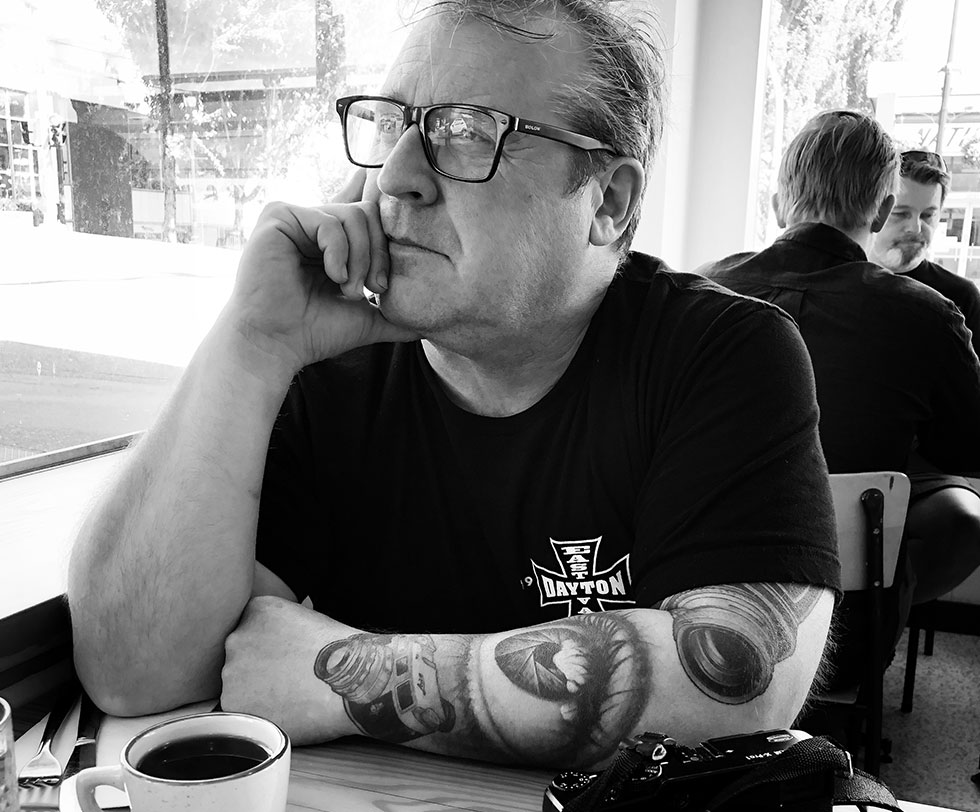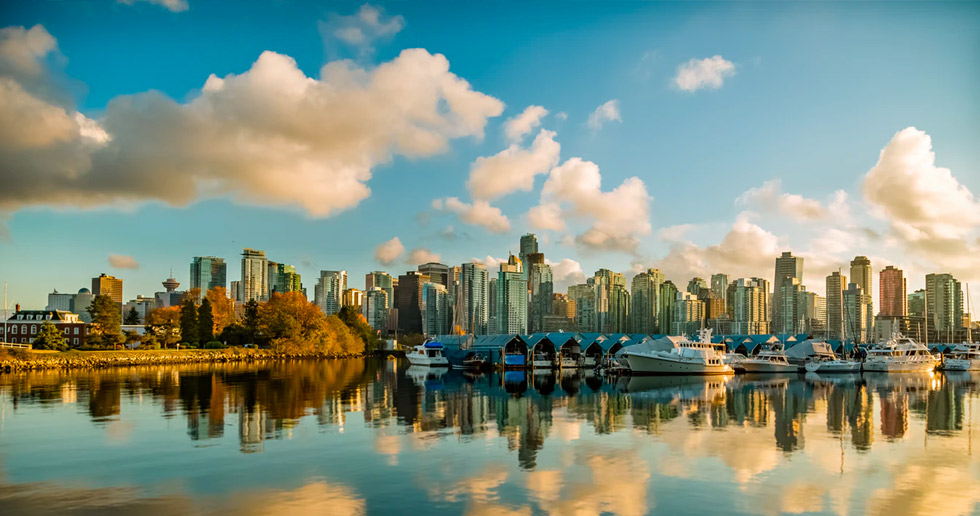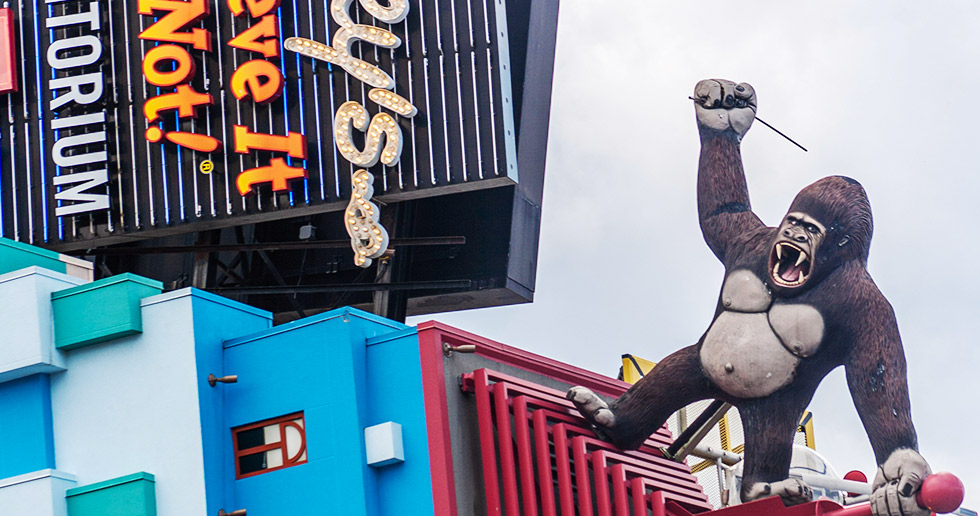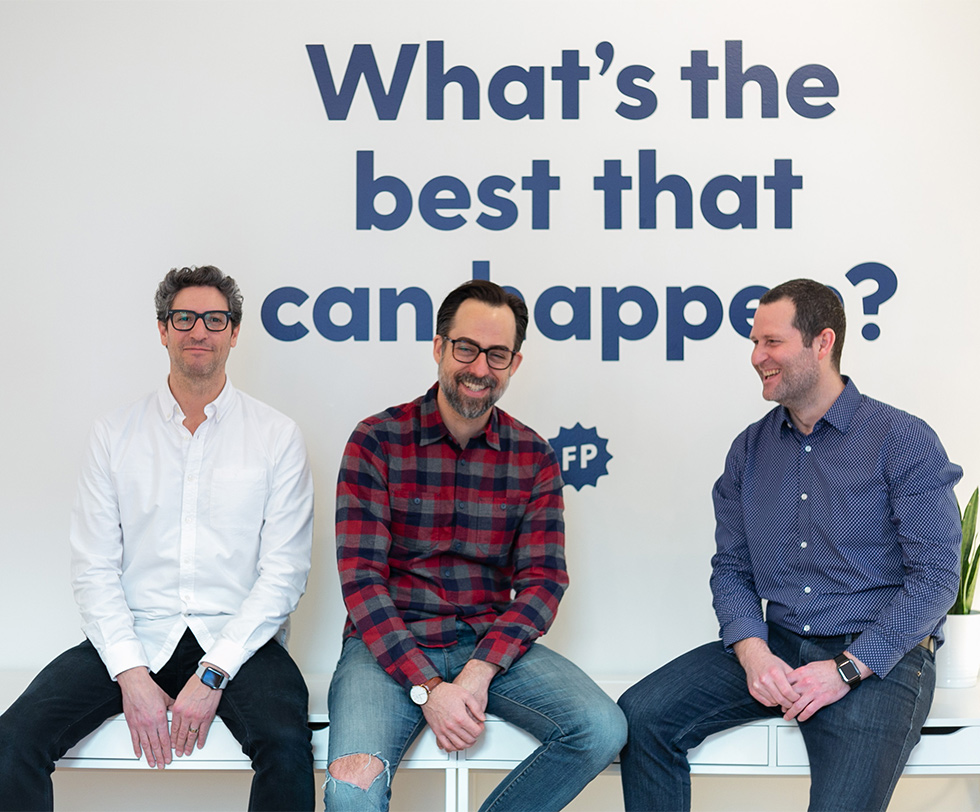
Full Punch: The New Face of Advertising in Vancouver
Mike Leslie on starting an ad agency in a kitchen, Vancouver’s talent pool, and the transition to entrepreneurship.
What was it like launching Full Punch?
We started making moves to leave our previous agencies around November of 2018. We had to make amicable departures from our past jobs, which turned out well. They were very supportive of us heading out and doing our own thing.
Which agencies were those?
I was President of TAXI, managing the Canadian operations.
One of our partners, Jack Dayan, was previously at TAXI as well. The two of us left together. And then our creative partner, Chris Zawada, was most recently freelancing, but he had done a stint at TAXI and Cossette prior to launching Full Punch.
You just named some pretty major agencies.
Yeah, it’s fun and scary.
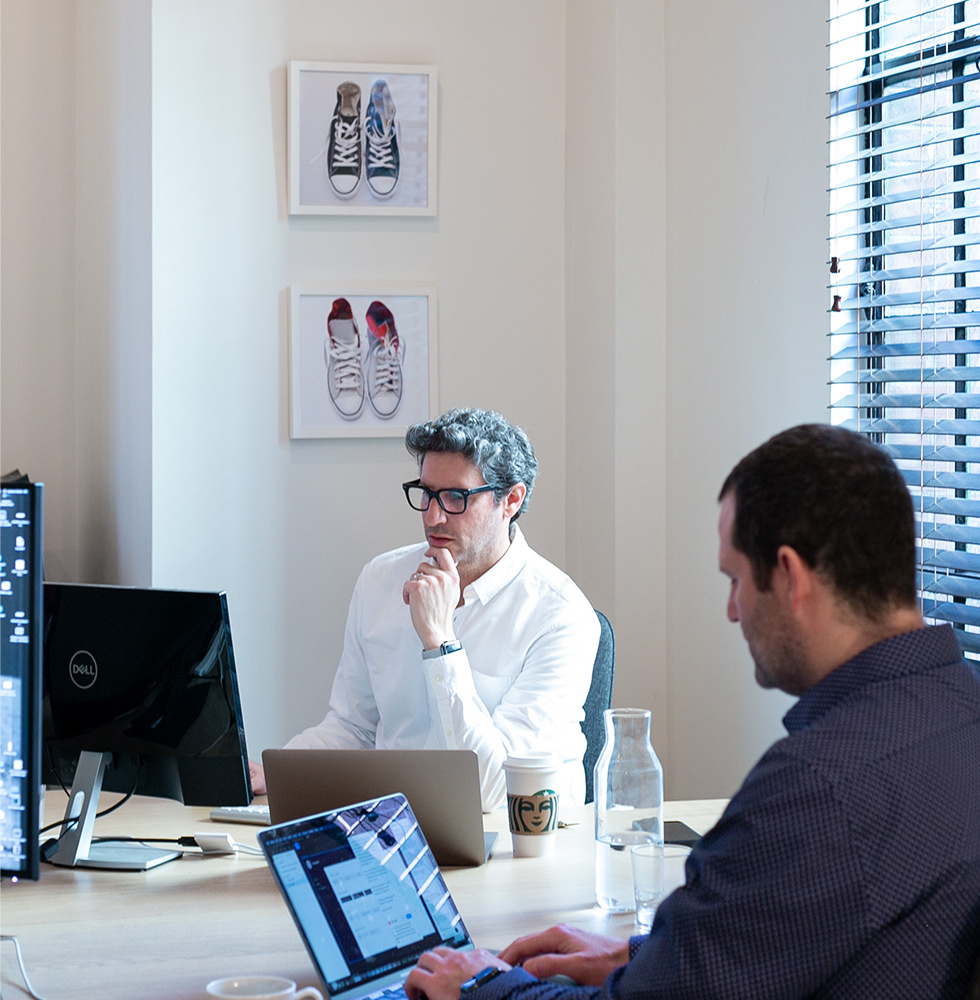
What do you mean scary?
We all had pretty good jobs. We moved from having a nice, consistent paycheck to not knowing where our next one is going to come from as you know all entrepreneurs experience. But at the same time, like… it’s advertising. We never really knew where our next paycheck was coming from. There’s never a guarantee of employment. So it’s not too distant, but it certainly makes it feel a little bit more real.
You three have been working in-house for years. What made you decide now’s the time?
There was a combination of factors as I presume it often is. The three of us have always had the dream of doing this. Even going back seven years ago Chris and I would joke about starting our own agency. It was a passion of the three of us from early days in our careers. That bug was always there. There was always a bit of an entrepreneurial spirit in all of us.
And then the timing came together. Chris was a freelance entity. I was the President of TAXI at a relatively young age. It started to beg the question of, “Well, what’s next after TAXI?”
So there’s a little bit of my own self-reflection on what I wanted to do within that organization as well and may not be as interesting as the future is interesting as I hoped it to be. Then for Jack as well who was at TAXI, he was the VP Head of Strategy and doing a lot of great work on some big brands. He was based out of Vancouver but doing work across the network and, you know, a similar story for him. “Well, what’s next?” So individually, the three of us were talking and then all of a sudden we started talking more as a group. It started to feel right that this was the good time to do it.
The economics weren’t necessarily on our side. Towards the end of 2018, the economy wasn’t necessarily in the best shape. But at the same time, that’s often the time where the most interesting creative product can come out of. You start to see what’s wrong with a lot of different models and different opportunities out there which gives us a good opportunity to define something new for the marketplace.
How long did it take you to plan and launch?
I’ll loosely say three months from, “Let’s make this thing a reality,” to “Getting it off the ground.”
That’s all? Three months?
Yeah. We started talking about things earlier than that, but it’s hard when you’ve got full-time jobs and you’re trying to do right by the organization that you’re working for.
Once we kind of made that decision, we are able to focus on things a little bit more. But at the same point I’d say we, maybe haven’t fully launched yet either.
So in addition to those first three months, we’ve been spending the past year not only working on our client’s business and certainly getting that to priority, but, trying to get our full website up. (Now live at fullpunch.com) So we’re not in a perfect spot from our standpoint but, you know, we’re working on it.
That sounds probably like any new agency, right?
Exactly. I think it’s constantly an iterative process and that’s the reality of today. The good thing about today is that the quicker you can respond and react to things and define yourself as the market changes, the better.
What kind of work are you doing at the moment? Do you have any projects that you can brag about?
A little bit. We’re currently doing work with Bosa Properties.
That’s worth bragging about.
We’ve done some work with BCLC. We’re doing work with an organization called AIHS. They’re a health solutions platform. We’ve recently re-launched another development brand called EDGAR.
We’re working with a brand called Knowhere out of San Francisco. They’re an AI driven, unbiased news platform that’s actually quite interesting. We just helped rebrand them.
We’ve done some work with Rebel Girls, with a marine energy company called SPBES. They’re based out of Vancouver but have global operations that – they’re essentially the sort of leading player in the field of developing hybrid and electrical marine vessels.
So it sounds like you’re doing a ton of work already.
Yeah, we are. It’s been busy, which has been great and a lot of different kinds of work as well. I’d say our core capabilities lie within design, advertising, and packaging. And in the first year, we’ve been able to touch on a lot of those things which has been great.
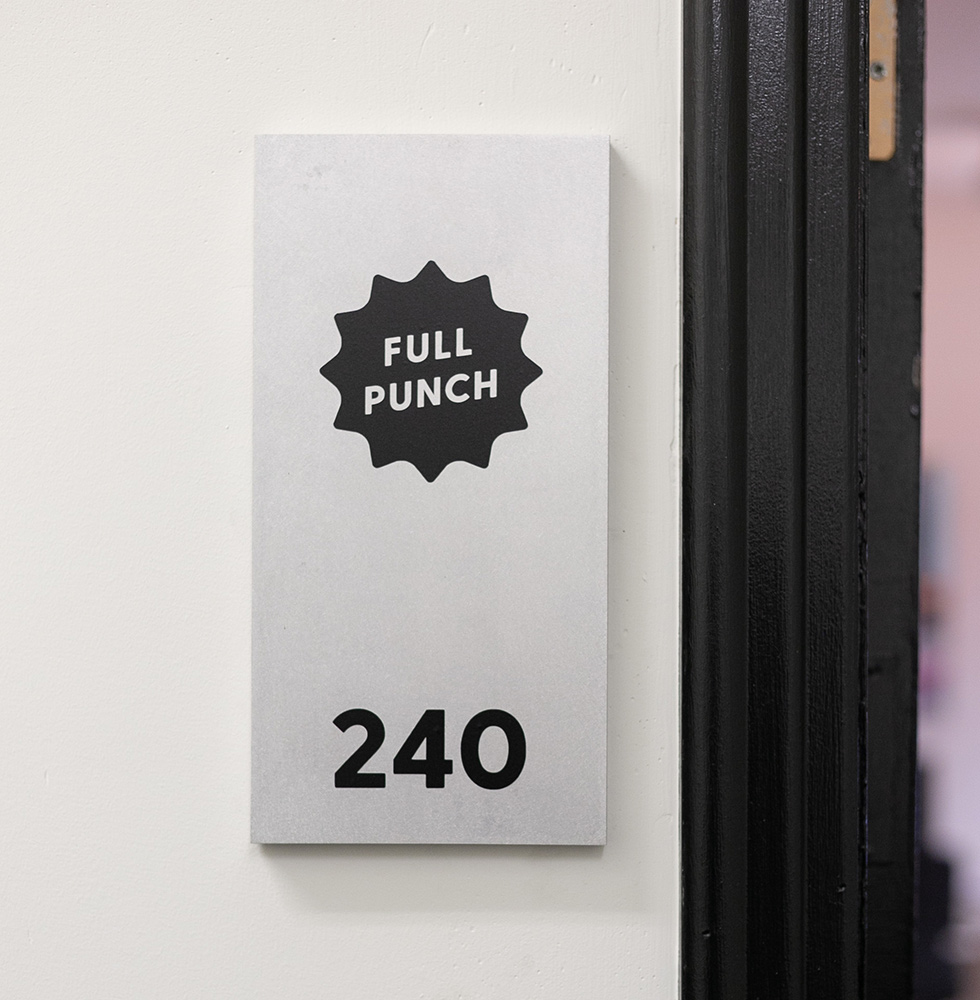
How much work did you guys have scheduled before you launched the agency?
Not very much, actually! I would recommend lining up work first versus the way that we did it.
One factor is that there’s a few non-competes that we’re all obviously tied into with our past employers. You certainly don’t want to leave on bad terms. I mean in Vancouver, it’s definitely a small market. Even nationally and within the advertising community it’s a small market. We certainly didn’t want to burn any bridges and steal and pillage new clients. But we did have Bosa prior to launching Full Punch, so that was one opportunity that we have towards some continuity of revenue and opportunity that we could continue working on.
But the rest were newly created opportunities that we had just from our own networks and stuff.
Great, I guess being in the industry for over a decade helps?
Yeah, definitely. We’ve spent a fair bit of time in California, working with clients and brands down there. That certainly helped us pick up some business within those markets.
It feels good knowing that the relationships that we have built have lasted and people like and respect the work that we’ve done for them. It’s great, because we’ve had more opportunities come through those personal relationships than we have in the past 10 years of my career. It speaks to being new and independent, and certainly having a personal stake in it. People want to invest and personally support you, rather than it be just another big agency.
How does Full Punch differentiate themselves from big agencies? Why do people hire Full Punch?
There’s certainly a lot of senior level involvement. It isn’t necessarily unique amongst all agencies. A lot of smaller, boutique agencies offer that as well. The founders or the heads of those shops are usually often more involved than the larger agency. I think we have a unique position based on the formation of the three founders.
It’s surprisingly uncommon that we have an account person in myself as my background. Chris is a creative designer, that’s his background. And then Jack is a strategist and a planner as his background. And although that’s a very traditional team that you’d have assigned to a project within an agency, it’s very rare that it’s those three disciplines that create a partnership and form an agency based on the balance of this partnership. We don’t consider ourselves to be one of those agencies that is creative-led for the sake of creativity or business-led for the sake of profit or strategic-led for the sake of becoming a consultancy.
The three of us being equal partners helps ensure there’s a good balance between all of those three disciplines and I think that’s what helps direct a lot of our work that it’s strategically brave, it’s creatively bold and it makes sense for the business and the client.
Your resourcing is a touch different isn’t it?
Yes, that makes us unique as well. We’ve developed a different kind of resourcing model, which is both reflective of today’s economy and needed in the pursuit of creativity. The labor force today, especially in the creative community, is kind of transient. But on the other hand there’s a great opportunity to leverage a lot of the freelance talent pool that’s out there. We have a model called Partners Plus. For our client, it means that you’re always going to be working with the partnership team, but we augment that team with a lot of talent that is a combination of long-term and short-term contracts. So we find the right people for the right project at the right time. And also the people that are motivated to work on a specific client project.
We find that a lot of freelancers may not want to work on one brand or industry. This enabled them to focus on the opportunities that they see and that are personally motivated to do. So we get passionate people working on the projects that they are most passionate about. This is different to the traditional agency model that’s going to have a few full-time people and if the client’s looking for a funny script, yet the writer’s not really the funniest writer but they’re the one that’s available. It’s not necessarily in the best interest of the client but or the agency, but they have to keep the individual busy.
That makes sense. So what kinds of work are you doing currently? What are the strengths?
Brand design, identify, package design, advertising.
How is it going the first three months? Is it exactly what you thought it would be?
It’s kind of been everything that I would hope it would be. I say that as there was the known good and not-so-hopeful negative side to it.
It’s been an incredible learning experience. All three of us had to adapt and learn and do so much more than we did in our individual roles as employees.
There’s all the entrepreneur kind of learning experiences that have been fun for us to go through. But then, of course, there are the challenges. It’s just been refreshing to be able to have the ability to do things that we otherwise wouldn’t be able to do.
What were some of the unexpected new hurdles that you’re facing that you didn’t see coming?
I don’t know if they were hurdles, but I think going through the process of taking on more responsibility in the context of managing your finances. Not being able to rely on a CFO.
Being able to see deeper into all aspects of the business and have a clear line of sight and be responsible and own those kinds of things. I don’t know if it’s a hurdle but it’s definitely something that has created a time constraint. There are so many other jobs that need to be done that need to fall on one of the three of us that otherwise wouldn’t.

Was it hard to find an office space in Vancouver that made sense for you?
Yeah, it was awful. We started in my kitchen which was interesting. We worked there for four or five months. It forced me to keep my house really clean.
There is zero vacancy and an all-time low for commercial real estate in Vancouver. All we could find was very expensive and very large spaces which we obviously didn’t want to commit ourselves to.
We spent the first little bit working in my kitchen until we could find a space that was right. We eventually found a nice, I’ll say a humble and charming office space that that has everything we need for now. And certainly, nothing more.
There’s another agency in town who has a story about starting in one of the founders garages. And I think that was seven years ago when they launched. I think it’s indicative of how much the housing markets’ changed, where you can’t even afford to start in a garage anymore, you have to actually start in the kitchen of your condo.
You were probably scrapping it out with the other new businesses for that 1% vacancy rate.
Absolutely. It was a competitive opportunity to try and get in and you end up having to take over someone with a sub-lease until you can actually get your own thing. But we’re feeling pretty good about this space that we’re in now.
We feel like we’re paying under market value for it. We want to be able to spend the bulk of our money or revenue focused on hiring the right talent so that we can build up a great team.
What’s coming up? How are you guys getting more known? How does an agency grow?
We’ve been fortunate enough that pretty much every opportunity that we’ve had so far has been through just our own personal network. It’s people finding out that we’re doing this. And then they say, “Oh my god, I have a project for you. This is so great.” Or, “I have a friend that does and I’ll get us in touch with people.”
All of our work so far has come through word of mouth, which is the best way to do it. You’ve kind of gone through the vetting process. It’s a very clean and efficient way to do it. There’s already a built-in level of trust and expectation. But we are taking some time just to get a little bit more of our commercial kind of products in place so that we can start to promote ourselves a little bit more aggressively in 2020 as well.
Promoting yourselves in Vancouver?
We’re not necessarily focused in Vancouver. We’re very proud of that fact that we live and work in the city. It’s a great city for that and I think it often goes unrecognized for the amount of talent and creativity and tech-focused companies that do come out of Vancouver.
Lululemon, Herschel, Hootsuite and so many other great companies that have come from Vancouver that I don’t think a lot of people outside of Vancouver know or recognize that. So we’re very proud to be from Vancouver, but we also recognize that our opportunity doesn’t necessarily lie only in Vancouver. Like most of the companies, we have a skill set of talent and people and approach that is appealing for people outside of this market. So that’s why we had some luck in California and out East.
Also, in the US we’re a little less expensive than a US agency. That works well in our favour.
Both Jack and myself have extensive experience working throughout the U.S., we’re very familiar with that market and have good contacts down there.
Is this a good city to have an agency in?
Yeah, but it’s not cheap to operate an agency here.
It’s amazing, but it’s also in high demand, so you’re not necessarily getting the most cost effective talent, but you’re still getting amazing talent for the price that you’re paying.
There’s a survey somewhere that listed various North American cities across a level of talent and the price of salaries, and Vancouver is like disproportionately low when compared to San Francisco or Los Angeles. So there’s some great opportunities with the talent here, but it’s not the cheapest as well.
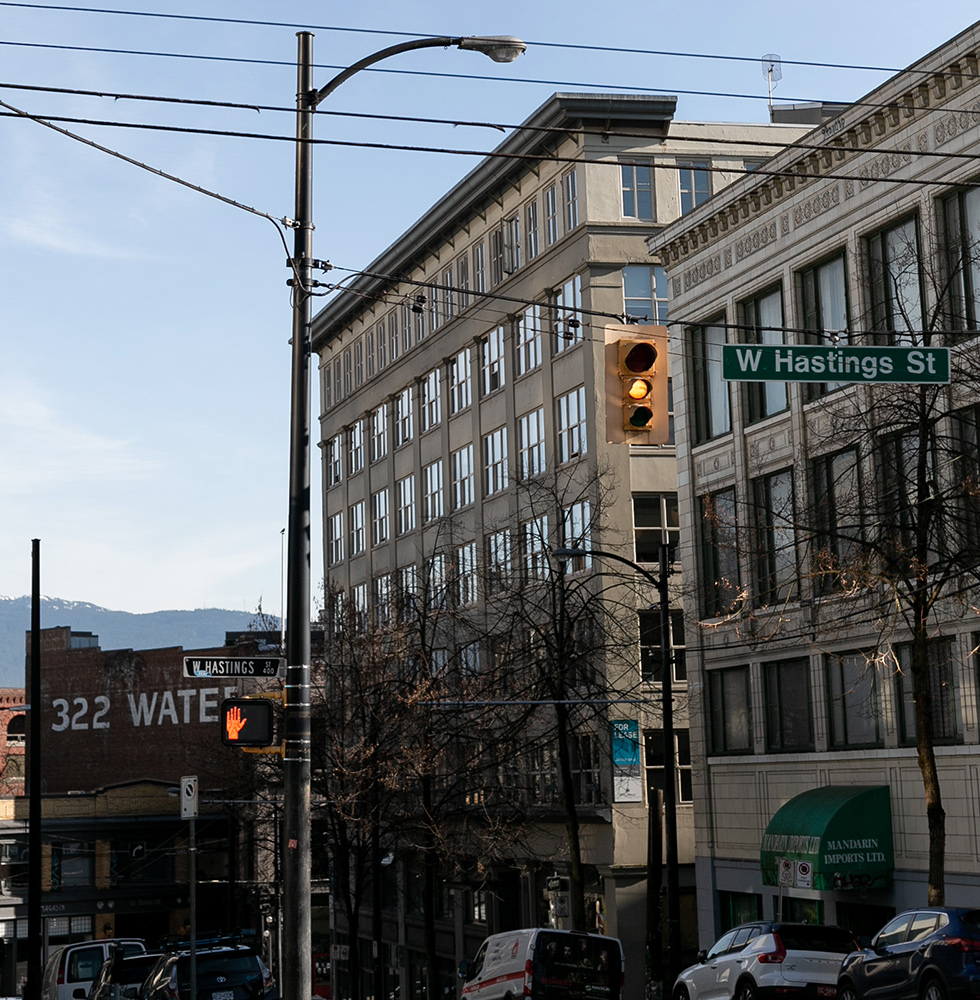
Is there a better agency city though? You’re sure because you want to be here, rather than wanting to start, for personal reasons over business reasons more or less?
The three partners are in Vancouver. In my last job with TAXI, I was asked to move to Toronto four times. And I just didn’t want to. I love Vancouver and I think it’s a great city for that work-life balance.
We all love Vancouver and want to stay in Vancouver. It does make for a great place to operate an agency out of.
That’s what I love to hear as a Vancouverite.
Yeah, and especially when we looked down the west coast. From a talent perspective, there’s nothing that separates us from great agencies in Portland, SF or LA. And yet, we have a great sort of value equation with our dollar experience. Like the film industry, the tech industry here is all first class opportunities that we can tap into.
And I think just from the outside looking in, a lot of people don’t necessarily recognize Vancouver as that, but it is very much that.
You can find Full Punch on:


